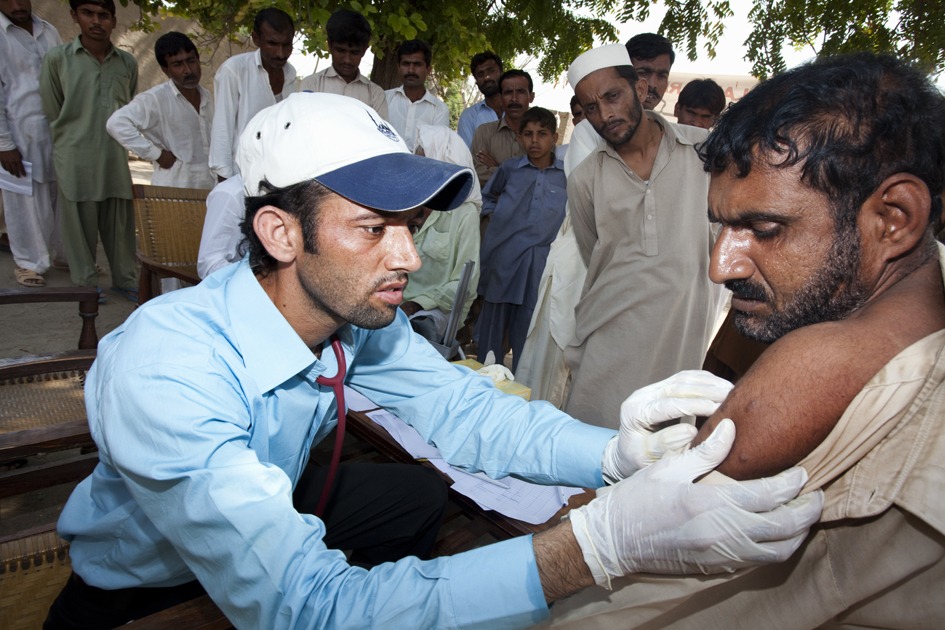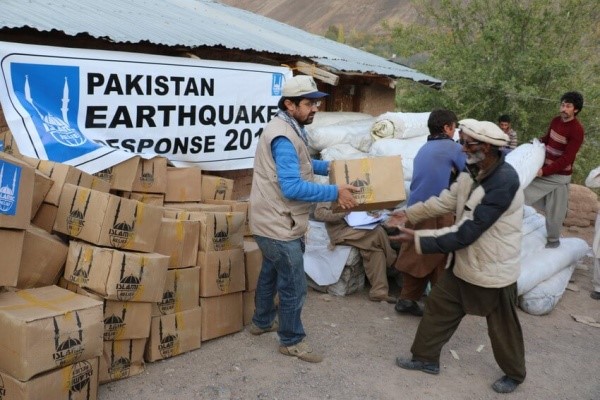As well as being one of the most highly populated countries, Pakistan is also host to one of the largest refugee populations worldwide. In addition to the struggle to meet the needs of the large population, vulnerable communities living in poverty are forced to contend with the effects of earthquakes and droughts year after year.

Reconstruction costs in the aftermath of these disasters have placed additional stresses on Pakistan’s fragile economy and local families’ daily lives. The impact of contaminated water sources, limited healthcare provision, and shortages of water and sanitation all contribute to communities’ daily struggle to survive.
- Life expectancy is just 66 years (World Bank, 2015)
- 44% of children under the age of 5 suffer from stunting (UN World Food Programme, 2017)
- Pakistan hosts around 1.4 million refugees (UNHCR, 2017)
- Over half of the population are illiterate (UNESCO, 2014)
Islamic Relief in Pakistan
Islamic Relief started working in Pakistan in 1992 through a child welfare and protection programme.
Amongst the many achievements was in 1998 when a prevention of blindness project was launched, leading to the opening of an eye hospital. The programme is still successfully operating and benefiting the community.
During the earthquake in 2005, Islamic Relief responded immediately with a comprehensive relief and reconstruction programme, for which we received an award by the government of Pakistan as well as international acclaim for the extensive humanitarian response.
During the 2010 and 2011 floods, that affected large parts of the country, Islamic Relief again responded immediately with an extensive relief operation Following the initial relief phase, a rebuilding phase was launched with an integrated village rehabilitation, which used an integrated approach, providing rehabilitation to water, sanitation and hygiene and housing facilities as well as livelihoods support.
Current projects:
The best way to help Pakistanis is to support them in their jobs – if families can earn a decent income, they can afford food, clothing, education and all the other necessities of life. One of our recent projects in Pakistan focused upon the following:
- Water sources – 103 safe water sources provided in a variety of ways: new hand pumps, solar pumps, dams, ponds and repairing old water supplies will all provide water to more than 5000 families.
- Restoring farms – 2000 farmers helped to restore their land, making it capable of growing crops, and four new irrigation channels to provide clean water for land and animals to 1000 farming families
- Better farming techniques – as well as rehabilitating the farmlands, 3000 farmers trained on better methods of farming which can survive floods, and 1000 given support on managing their animals to keep them healthy
- Solar-powered lights – 900 families given lighting in their homes so they can fully utilise their new skills to earn a better income at any time of day or night
- Warning systems for floods – 40 community groups trained to raise the alarm if floods come again, and given the skills to respond quickly, saving lives and homes.
